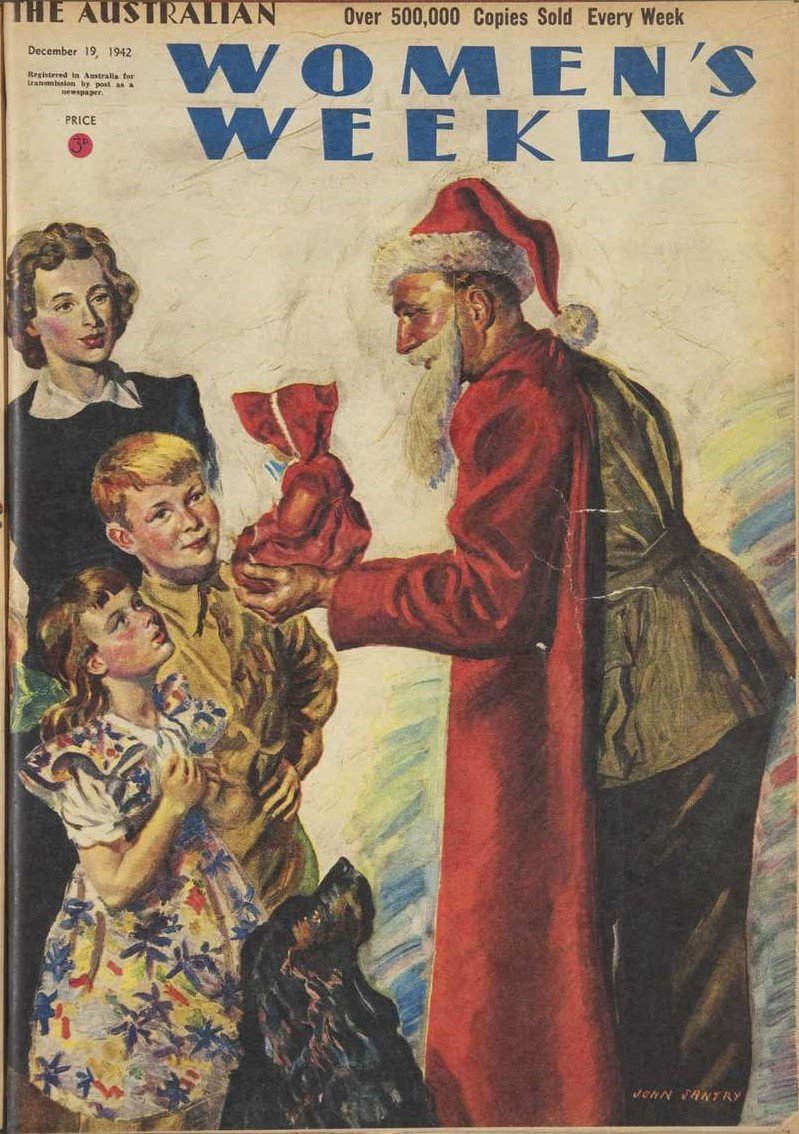On this day, 25 December 1942, Robert Menzies delivers a Christmas Night radio broadcast, capping off a series of 51 episodes that had gone out on national airwaves every Friday night at 9.15pm since 9 January. The year that had passed was arguably the most perilous in Australian history, as the threat of Japanese invasion loomed over the nation. It was this context that made the ‘Forgotten People’ Series, the early episodes of which had caused such a stir that they were reported in the New York Times and both Houses of British Parliament – as people had been eager to hear candidly from a war leader who had only recently resigned from office. Menzies’s broadcasts had reacted to such grave events as the bombing of Darwin and the arrival of General MacArthur, but around 22 May, the date the ‘Forgotten People’ was delivered, they had taken a philosophical turn as Menzies looked towards the future and the Australia that was to emerge strengthened by its greatest test.
His Christmas message was briefer than an ordinary broadcast, but was deeply heartfelt:
‘During 1942, week by week, it has been my privilege to speak to you about important current problems and to try to help both you and myself to clarify our minds on some of those questions which we must be able to answer if we are really to be good citizens in a democracy.
What I want to do tonight is to tell you how much I have valued the opportunity afforded to me by so many listeners-in, and to convey to you my warmest wishes for a Happy Christmas and a Victorious New Year.
Freedom is not purchased except at a great price; and it is one of the greatest misfortunes of war that the price can never in the nature of things be paid quite evenly. War leaves some of us relatively untouched. To others it brings black tragedy and irreparable loss.
My own thought tonight, like yours, is principally for those among us to whom what is normally a Merry Christmas gathering must bring sad memories. To all such I would like to say this: that the whole progress of mankind towards that better way of life for which the world has been struggling for thousands of years is inevitably marked by great and grievous sacrifice. The Cross which is the symbol of the Christian faith is itself the figure of sacrifice. Moreover I do not believe that national and personal sacrifices in a great cause are ever fruitless.
To some who lost their sons in Greece, for example, that campaign must at one stage have seemed not only ill-advised and ill-fated, but futile, since it ended in defeat and evacuation. Yet, there are competent strategists who believe – and I think with great reason – that the delay imposed upon Germany in Greece postponed the German attack on Russia just long enough to spoil the German time-table and give Russia the opportunity she so splendidly took in the winter of 1941/2; a winter which, as we now know so weakened Germany that she must by now be admitting to herself that she cannot defeat Russia and she cannot win this war. All these personal losses so gallantly borne must never be forgotten by us, either as individuals or as a nation. The tribute we must pay is not merely one of words, sincere though our words are. We must all conduct ourselves that when the war is over Australia will be a country worthy of the lives of good and brave men.
We are not to come into a heritage which we may merely enjoy and dissipate. We are to succeed to a great trust, the obligations of which will be none the less real and far-reaching because they will not any longer call for the sacrifices of our lives but will demand the full and ungrudging service of our hearts and minds.’
Sign up to our newsletter
Sign up for our monthly newsletter to hear the latest news and receive information about upcoming events.


